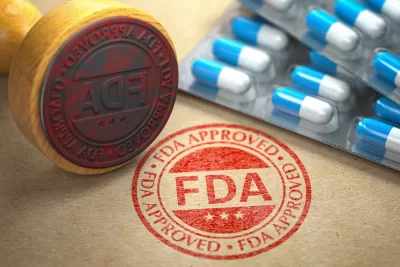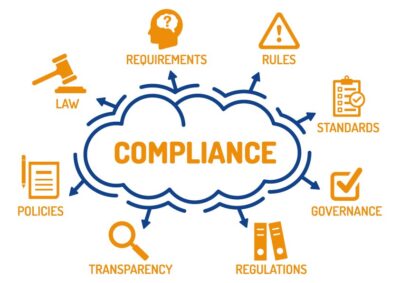Table of Contents
Regulations govern every industry’s marketing efforts. However, regulatory challenges in healthcare marketing are more common because the industry is heavily regulated. Everything from patient privacy to advertising and disclosure. As a result, healthcare marketers must be well-versed in the regulatory environment, understand the risks of non-compliance, and develop strategies to ensure their campaigns are in compliance with all applicable laws and regulations.

For instance, the most prevalent healthcare marketing regulatory challenge is the need to balance the desire for personalized, targeted marketing with the need to protect patient privacy. While targeted marketing can be highly effective, it can also be seen as intrusive or even creepy if not done correctly. As a result, healthcare marketers must be careful to avoid overstepping boundaries or violating patient trust, while still delivering effective marketing campaigns that drive revenue and engagement.
Understanding Healthcare Regulations
As a healthcare marketer, it is crucial to have a solid understanding of the regulations governing the industry, and the common regulatory challenges in healthcare marketing. Failure to comply with these healthcare regulations can result in hefty fines and legal action. In this section, we’ll discuss two of the most important regulations healthcare marketers need to be aware of: HIPAA compliance and FDA marketing guidelines.
HIPAA Compliance
HIPAA, or the Health Insurance Portability and Accountability Act, is a federal law that protects the privacy and security of patients’ health information. HIPAA compliance is essential for any healthcare organization that handles patient data. As a marketer, you need to be aware of HIPAA regulations when creating campaigns that involve patient data, such as email marketing or social media advertising.
To ensure HIPAA compliance, you need to follow certain guidelines, such as obtaining patient consent before using their data, implementing security measures to protect patient information, and training staff on HIPAA regulations. Failure to comply with HIPAA regulations can result in significant penalties, including fines and legal action.
FDA Marketing Guidelines
The FDA, or the Food and Drug Administration, regulates the marketing of drugs and medical devices in the United States. As a healthcare marketer, you need to be aware of the FDA’s marketing guidelines when creating campaigns for drugs or medical devices.

The FDA has strict guidelines for the marketing of drugs and medical devices, including rules around claims made in advertising, the use of testimonials, and the disclosure of potential side effects. It’s important to ensure that your campaigns are in compliance with these guidelines to avoid legal action and fines.
1. Digital Marketing Strategies
Overcoming regulatory challenges in healthcare marketing requires a solid and effective digital marketing strategy. There are several strategies that can be employed to overcome these regulatory challenges and reach your target audience effectively.
Social Media Outreach
Social media platforms such as Facebook, X, Instagram, and TikTok can be powerful tools to connect with your audience. However, it is important to be mindful of regulatory requirements when using social media for healthcare marketing. For instance, you should avoid making any false or misleading claims about your products or services. You should also obtain consent from patients before sharing their personal information on social media.
To make the most of social media outreach, you can create engaging content such as infographics, videos, and blog posts that provide valuable information to your audience. You can also use social media to build relationships with your patients by responding to their queries and concerns in a timely manner.
Email Campaigns

Email marketing is another effective strategy to reach out to your target audience. You can use email campaigns to share information about your services, promote new products, and provide educational content to your patients. However, it is important to obtain consent from patients before sending them marketing emails. You should also ensure that your emails comply with regulatory requirements such as the CAN-SPAM Act.
To create effective email campaigns, you can segment your email list based on patient demographics, interests, and behavior. You can also use personalization techniques such as addressing patients by their first name to make your emails more engaging.
Search Engine Optimization
Search engine optimization (SEO) is the process of optimizing your website to improve its ranking on search engine results pages (SERPs). By improving your website’s ranking, you can attract more organic traffic to your website and increase your visibility online.
To optimize your website for search engines, you can use techniques such as keyword research, on-page optimization, and link building. You should also ensure that your website is mobile-friendly and has a fast loading speed.
By employing these digital marketing strategies, you can overcome regulatory challenges in healthcare marketing and reach your target audience effectively.
2. Data Privacy and Security
In the healthcare industry, data privacy and security are of utmost importance. With the increasing use of technology, protecting sensitive patient information is one of the critical regulatory challenges experienced in healthcare marketing. Healthcare organizations must take measures to ensure that data breaches do not occur and patient data remains secure.
Data Breach Risks

The risk of data breaches is a significant cause of the regulatory challenges in healthcare marketing. This is because data breaches cost the healthcare industry billions of dollars, with 4 out of 5 data breaches targeting healthcare providers. Data breaches can occur due to various reasons, such as hacking, phishing, and employee negligence. The consequences of a data breach can be severe, including financial losses, legal action, and damage to reputation. Healthcare organizations must take steps to minimize the risk of data breaches.
One way to reduce the risk of data breaches is to implement strong access controls. This includes limiting access to sensitive data to only authorized personnel. Additionally, organizations should regularly review their security policies and procedures to ensure they are up-to-date and effective.
Cybersecurity Measures
Regulatory challenges in healthcare marketing also focus on cybersecurity. Cybersecurity measures are primarily essential in protecting patient data. Healthcare organizations should use firewalls, antivirus software, and intrusion detection systems to prevent unauthorized access to their systems. Regularly updating software and implementing security patches can also help prevent cyber attacks.
Another cybersecurity measure is to conduct regular employee training on data privacy and security. Employees should be aware of the risks of data breaches and how to prevent them. This includes being cautious of phishing emails and using strong passwords.
3. Advertising and Promotion

Advertising and promotion play a crucial role in creating brand awareness and driving sales. However, the regulatory environment surrounding healthcare advertising is complex and highly scrutinized, thereby creating most of the regulatory challenges in healthcare marketing. It is essential to comply with all regulations to avoid penalties and maintain trust with your audience.
Product Claims
One of the biggest challenges in healthcare advertising is making product claims. The Food and Drug Administration (FDA) regulates all advertising and promotion of prescription drugs and medical devices. Any claims made in advertising must be truthful, accurate, and not misleading. Companies must have substantial evidence to support any claims made in advertising.
Off-Label Promotion
Off-label promotion is another area of healthcare advertising that is heavily regulated. Off-label promotion refers to promoting a product for a use that has not been approved by the FDA. Companies are not allowed to promote their products for off-label uses, and doing so can result in significant penalties.
To navigate these regulatory challenges in healthcare marketing, it is essential to have a solid understanding of the regulations and guidelines surrounding healthcare advertising. Companies should have a compliance program in place to ensure that all advertising and promotion is compliant with regulations.
4. Compliance with State Laws
Complying with state laws is the best way to navigate many of the regulatory challenges in healthcare marketing. Failure to do so can lead to hefty fines, legal problems, and damage to your reputation. State laws can vary significantly, so it is essential to understand the regulations in your state.

State-Specific Regulations
Each state has its own regulations that govern healthcare marketing. These regulations can cover a wide range of topics, including advertising, patient privacy, and licensing requirements. For example, some states require healthcare marketers to obtain a license before they can advertise or market healthcare services.
It is crucial to research and understand the regulations in your state to ensure that you are in compliance. You can find information about state-specific regulations on the website of your state’s Department of Health or Department of Insurance.
Licensing Requirements
In addition to state-specific regulations, healthcare marketers may also need to comply with licensing requirements. Licensing requirements can vary depending on the type of healthcare service being marketed. For example, if you are marketing a specific medical procedure, you may need to have a license to perform that procedure in your state.
It is essential to research and understand the licensing requirements in your state to ensure that you are in compliance. You can find information about licensing requirements on the website of your state’s Department of Health or Department of Insurance.
Overall, compliance with state laws is crucial for healthcare marketers. By understanding state-specific regulations and licensing requirements, you can ensure that your healthcare marketing campaigns are in compliance and avoid legal problems.
5. International Regulatory Challenges in Healthcare Marketing
International marketing considerations should be taken into account as a strategy for navigating regulatory challenges in healthcare marketing. This is because different countries have different regulations and laws that healthcare marketers must comply with. Two important international marketing considerations to keep in mind are the EU GDPR and global regulatory differences.

EU GDPR
The EU General Data Protection Regulation (GDPR) is a regulation that was introduced in May 2018. It applies to all companies that process the personal data of EU citizens, regardless of where the company is located. Healthcare marketers must comply with the GDPR when collecting, storing, and using personal data of EU citizens.
To navigate the regulatory challenges in healthcare marketing associated with GDPR, you should ensure you have a legal basis for processing personal data, obtain explicit consent from individuals, and implement appropriate technical and organizational measures to protect personal data. Failure to comply with the GDPR can result in fines of up to €20 million or 4% of global annual turnover, whichever is greater.
Global Regulatory Differences
In addition to the EU GDPR, healthcare marketers must also be aware of global regulatory differences. Different countries have different regulations and laws that healthcare marketers must comply with. For example, in the United States, the Food and Drug Administration (FDA) regulates healthcare marketing, while in Canada, the Health Canada regulates healthcare marketing.
As a healthcare marketer, you must ensure that you are aware of the regulations and laws in each country you are marketing in. You must also ensure that your marketing campaigns are in compliance with these regulations and laws. Failure to comply with global regulatory differences can result in fines, legal action, and damage to the reputation of your healthcare brand.

In summary, international marketing considerations are important for healthcare marketers to keep in mind. The EU GDPR and global regulatory differences are two important considerations that healthcare marketers must comply with to ensure that their marketing campaigns are in compliance and to navigate regulatory challenges in healthcare marketing.
Ethical Concerns in Healthcare Marketing
When it comes to navigating the regulatory challenges in healthcare marketing, ethical concerns are of the utmost importance. Strict rules and guidelines must be followed to ensure that marketing efforts do not cross ethical boundaries.
One of the most important ethical concerns in healthcare marketing is ensuring that all claims made in advertising and promotional materials are accurate and truthful. This includes claims about the effectiveness of products or services, as well as claims about the qualifications and expertise of healthcare professionals. Any false or misleading claims can be harmful to patients and can erode trust in the healthcare system.
Another important ethical concern is protecting patient privacy. Healthcare marketers must be careful not to disclose any confidential patient information in their marketing efforts. This includes personal information such as names, addresses, and medical histories. Violating patient privacy can result in legal action and can damage the reputation of healthcare organizations.

In addition to these concerns, healthcare marketers must also be mindful of the impact their marketing efforts may have on vulnerable populations. For example, marketing materials that target children must be appropriate and not exploit their vulnerability. Similarly, marketing efforts aimed at elderly populations must be respectful and not take advantage of their age-related vulnerabilities.
Overall, healthcare marketing requires a careful balance between promoting products and services while also upholding regulatory and ethical standards. By following regulations and guidelines, healthcare marketers can ensure that their efforts are effective, ethical, and beneficial to patients and all users at large.







